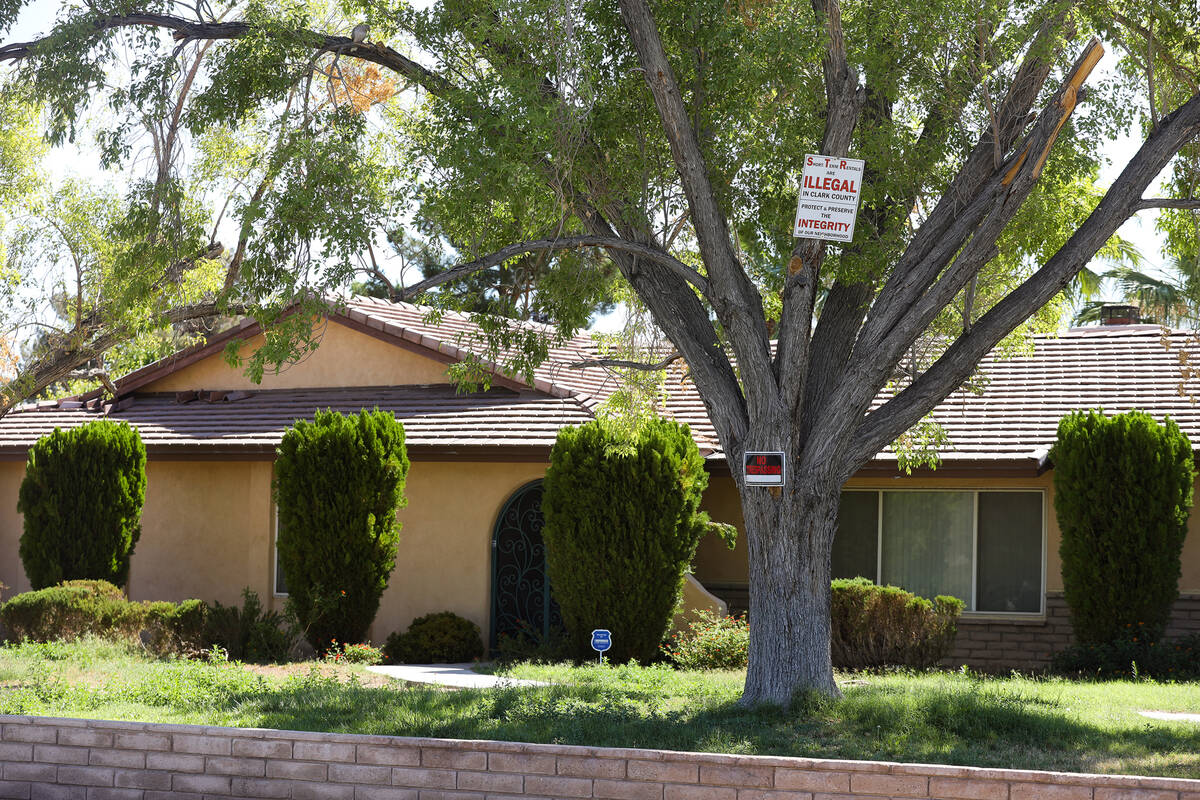Clark County is regulating short-term rentals. Tell them how.
Clark County is seeking resident feedback on short-term rentals as officials look to regulate the often divisive industry by July 1, a state-mandated move that will be a departure from the county’s current ban.
Officials launched an online survey late last month to gauge residents’ personal experiences with vacation rentals, such as Airbnb and VRBO, and how they believe the industry should be governed in the unincorporated county.
The survey, which is open to people in local incorporated cities too, will be available through the end of January. Officials said they will consider responses as they draft a regulatory ordinance, which must ultimately be approved by the county commission.
Short-term rentals have been a polarizing issue between some who say they are a property right and important to small investors and others who criticize the emergence of so-called “party houses” in tight-knit residential areas.
The pivot from a ban to legalization comes after the state Legislature passed Assembly Bill 363 last summer, forcing the county to regulate short-rentals amid strong evidence that outlawing the industry had been ineffective. More than 6,000 properties have been estimated to be defying the prohibition in the unincorporated county.
The state bill, which had critics from both sides of the debate, sets certain rules on vacation rentals, including requirements on distance separation and proximity to resort hotels, and limits on occupancy and the number of permits an operator may hold.
Take the county’s survey here: www.ClarkCountyNV.gov/survey. And visit www.ClarkCountyNV.gov/subscribe to receive county updates on its short-rental regulations.
Contact Shea Johnson at sjohnson@reviewjournal.com or 702-383-0272. Follow @Shea_LVRJ on Twitter.























